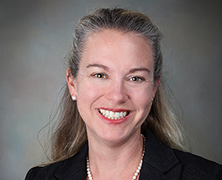My Work May Just Help Save a Whale after All
I chose environmental engineering as my major because, as an 18-year-old, I thought I would save whales and build solar cars. It turns out environmental engineering has nothing to do with either of those things. Environmental engineers design water treatment plants, wastewater treatment plans, air pollution controls, and remediation systems that remove harmful chemicals from the soil and groundwater. Environmental engineers clean up the environment and provide people with clean water and air—it’s in this intersection of people and environment that I found my passion.
My mother was my first inspiration for water conservation. Growing up in southern California, we were always in a drought, and kids were taught at an early age that wasting water was a crime. One summer, my mother devised her own greywater reuse system. The rinse water from the washing machine emptied into a 32-gallon trashcan. That water would then be poured back into the washing machine for the next wash load. (We also gained upper body strength.) In the bathroom, cold water was caught in a bucket while waiting for the shower to get hot. That water was later used to flush the toilet. My mom instilled in me the importance of conservation and the engineering concepts of household plumbing.
Engineering work that truly helps people doesn’t always bring fame—a lesson I learned at my first job after graduate school. I worked for the Los Angeles County Sanitation Districts in the Compton Field Office performing sewer maintenance. Glamorous it was not, but we were providing an essential service—taking away people’s dirty water.
Sewers and their functions should be invisible. When people become aware of their sewer system, something has gone wrong. I take pride in working in a field that, when our work is done right, no one knows exists. When water comes out of the tap and toilets flush and traffic signals change, no one thinks about the many engineers who are working hard for public health and safety. They may not be visible, but they can take pride in their work.
I am currently on a special assignment with Sandia National Laboratories to transition our campuses to net-zero emissions. Transitioning to net-zero campuses may not be as vital as providing clean water, but with earth and ocean temperatures rising, net-zero is urgent to help mitigate climate change.
I am very grateful to have been given the opportunity to reduce greenhouse gas emissions at one of our national laboratories. I am very grateful to the scores of people who helped me get where I am today. If we can stop the rise of earth and ocean temperatures, then my work may just help save a whale after all.







